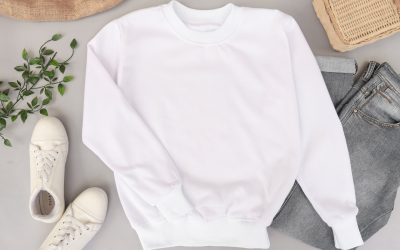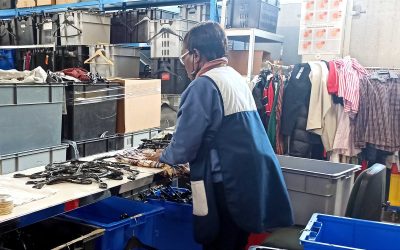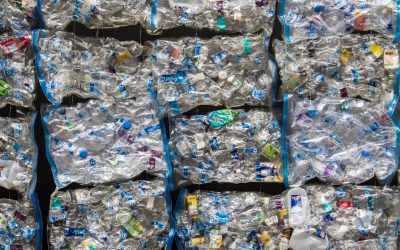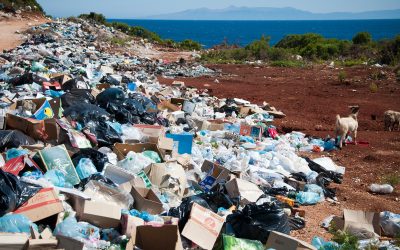Publications
RREUSE’s Feedback on Strengthening Social Dialogue in the EU
As the international network of reuse, repairing and recycling social enterprises promoting the social and circular economies, the RREUSE network has a long tradition of contributing to the implementation of the principles of the Pillar.
Letter on concerns about the Product Environmental Footprint methodology and its application to apparel and footwear products – Co-signed by RREUSE
12 civil society organisations call on the European Commission not to use the Product Environmental Footprint category rules (PEF-CR) for apparel and footwear “as the standalone method behind any future textile product labelling scheme, for substantiating green claims made in marketing, or in any other EU policy measures announced as part of the EU Strategy for Sustainable and Circular Textiles”.
RREUSE & ENSIE Position on the 2022 Ukraine Refugee Crisis
Following the Russian invasion of Ukraine in February 2022, on April 14, 2022, RREUSE, the European Network of Reuse and Recycling Social Enterprises, in cooperation with ENSIE, the European Network of Work Integration Social Enterprises (WISEs), organised an online discussion among their members in the presence of representatives of the European Commission (DG EMPL, DG GROW).
RREUSE’s Feedback on the Call for evidence: Framework Conditions Social Economy
RREUSE welcomes the initiative and calls on the Commission to ensure the Council Recommendation sends a clear message to Member States to promote a better national framework in support of the actors of the social economy, including social enterprises active in reuse, repairing, and recycling waste management activities.
RREUSE’S Position Paper on the EU Textiles Strategy
As part of its Circular Economy Action Plan, the European Commission published the “EU strategy for sustainable and circular textiles” on the 30th of March 2022. This communication presents the Commission’s vision for the future of the textile industry and related pieces of legislation concerning the sector. RREUSE puts forward a series of recommendations for the effective implementation of the Strategy.
RREUSE’s response to the Public Consultation on the revision of the Waste Framework Directive (WFD).
Aiming at accelerating the green and digital transitions of the EU industry, the European Commission has prepared a Staff Working Document to outline possible scenarios for a transition pathway for a more resilient, sustainable, and digital textiles ecosystem. RREUSE reflected on the issues and possible output scenarios for 2030 that were presented in the Staff Working Document, and put together the response below.
Waste Framework Directive review: Why we need waste prevention targets now
So far, EU member states’ waste prevention plans do not adequately implement quantitative targets. So far, EU member states’ waste prevention plans do not adequately implement quantitative targets.
Feedback on the Call for Evidence on the De Minimis Aid Regulation
RREUSE, in accordance with ENSIE, proposes adding another exception to Article 1 of the De Minimis Regulation. With this proposal, RREUSE joins partner organizations’ call to advocate for the development of the job creation potential brought by work integration social enterprises.
RREUSE Comments on the European Semester 2021
While most Member States address circular policies to foster the green transition within their recovery and resilience plans, still too many fall short of designing holistic environmental measures with a strong social component. Within a current context of economic uncertainty and multiple global crises, besides the necessity of a green transition that is both fair and inclusive, RREUSE emphasises the importance of an economic and environmental agenda characterised by strong social and circular economy principles.
Can re-use save the planet? Yes – and we have the evidence
The take, make, use, and dispose economy is fuelling the climate emergency. Re-use and preparation for re-use contribute to climate change mitigation by preventing resource depletion, diverting products and materials from landfills and incineration (therefore preventing associated emissions), and reducing energy demand.
Revision of the Monitoring Framework for the Circular Economy
RREUSE calls for a more comprehensive monitoring framework for the circular economy (MFCE). While the environmental, economic and social benefits of re-use are well documented, re-use is inexplicably not covered in the MFCE adopted in 2018. Hence, the revision of the MFCE is a much-needed opportunity to include re-use and preparation for re-use indicators, in line with the waste hierarchy and following the Commission Implementing Decision laying down a common methodology and a format for reporting on re-use.
RREUSE feedback on the Sustainable Products Initiative
RREUSE welcomes the revision of the Ecodesign Directive through the Sustainable Products Initiative (SPI) as a major opportunity to enhance product sustainability and to pave the way for a transition towards sustainability within European markets.













